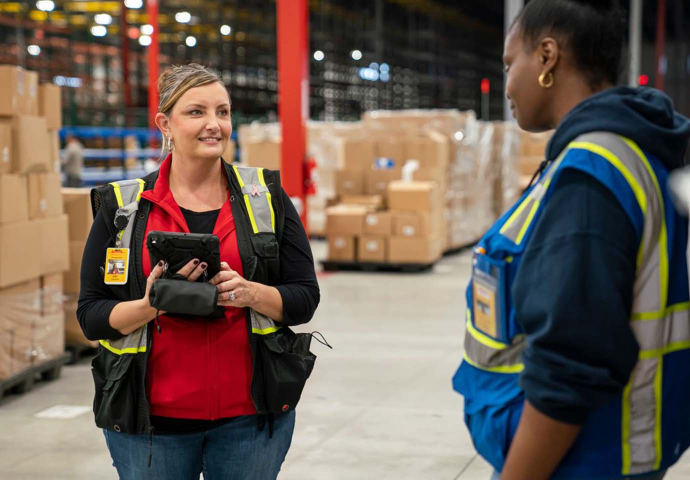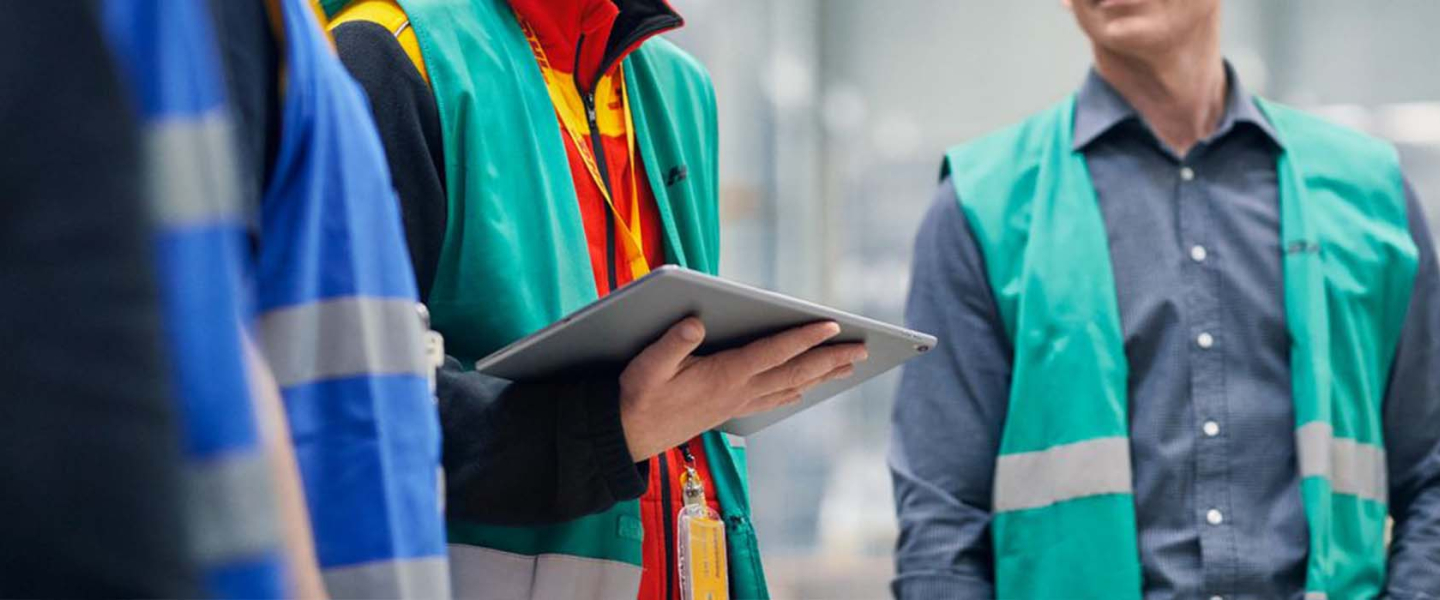
PAPERLESS TRADE
Shipments go faster through the network when you use our digital services. By using our services DHL Paperless Trade and Digital Clearance, the information is always available electronically. With this data, the processing of your shipment can start faster and enables timely customs clearance. Use of DHL Paperless Trade is free and contributes to a cleaner environment with less paper.
COMPLIANCE
Legislation is an important factor in the logistics world when it comes to submitting customs declarations. Customs has the option of investigating goods flows for which customs declarations have been submitted up to 7 years after that date. It goes without saying that it is very important that these customs declarations are correctly processed and submitted. Where a limited dataset leads to manual work and is subject to human interpretation, an automated, complete and correct dataset ensures that this data can be directly integrated into a customs declaration without any manual intervention.
DHL attaches great importance to submitting correct declarations. For that reason we are also AEO certified. This certification ensures that DHL can apply simplified customs clearance procedures. Simplifications that can only be maintained if DHL can continue to guarantee that the submitted data is compliant in the future. We need your help with this and you also benefit from this status. Your customers on the other side of the world will quickly have the goods available.


GREEN LANES
Correct declarations lead to a higher 'level of trust' with the authorities, which means that the shipments become part of a so-called Green Lane. Green Lanes are subject to fewer controls, which means that shipments are released quickly and can follow their way to destination without delay. By providing complete and compliant data, there is a good chance that your shipment will be transported quickly to its destination via a Green Lane.
SPEED
Customers (of customers) are becoming more demanding. The speed at which a shipment travels to its destination can make that difference that makes a customer choose a particular product. Manual actions slow down the shipment and can even prevent a shipment from making its transit time in the event of mistakes due to human error.

EXPIRED VALUE EXEMPTIONS
There has been a worldwide tendency to abolish value exemptions for VAT in order to protect local trade. As a result, even for low value exemptions, a more complete customs declaration must be submitted before the goods arrive at their destination. Examples of countries that have already started this are the EU, Switzerland, Norway, United Kingdom, Australia, etc. The result of this development is that more and more detailed data is needed to release goods for delivery to consumers. Be prepared for this global development and ensure complete and correct data for your shipments.


INCREASED NEED FOR EARLY DATA
We observe a worldwide trend in which authorities wish to have data available earlier. Examples of this are ICS2 from the EU and ASN (Anti Smuggling Net) from the United Kingdom. Data must be submitted to the authorities before goods leave for the relevant countries. Failure to submit data on time will prohibit loading of the goods on the means of transport to these countries. It will only be a matter of time before more countries want to implement these types of controls at the earliest possible stage. As a supplier, you don't want to miss the boat here because your data was incomplete and incorrect.
MULTIPLE DATA ANALYSIS FOR RISK INVENTORY
In addition to the fact that shipment data are used for customs declarations, security also plays a major role in logistics. In the case of export from the Netherlands alone, a shipment can be classified as a risk by several systems of authorities. Think of the declaration system of Dutch Customs. Subsequently, the shipment can be selected for physical inspection under the simplified eCommerce procedure. Upon arrival at the last point of exit from the EU, the authorities have the opportunity to make selections based on available data.
We then only looked at the export procedure. Risk analyzes are also carried out by various systems for transit through other countries and import into the country of destination. Detailed data makes it possible for customs and other authorities to exclude risks. Vague goods descriptions or generic descriptions for a combination of goods will lead to more "hits" in the risk inventory in countries of export, transit countries and countries of import. Detailed information can remove doubts about the contents of a shipment and will lead to a smooth flow.

